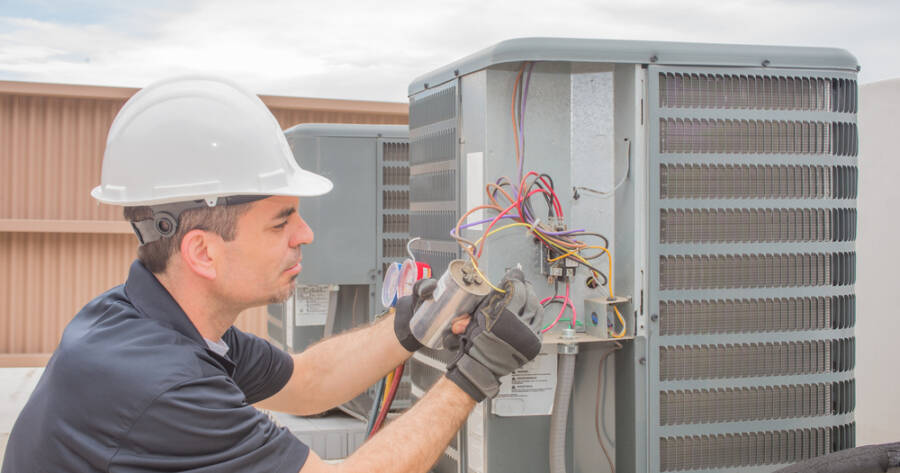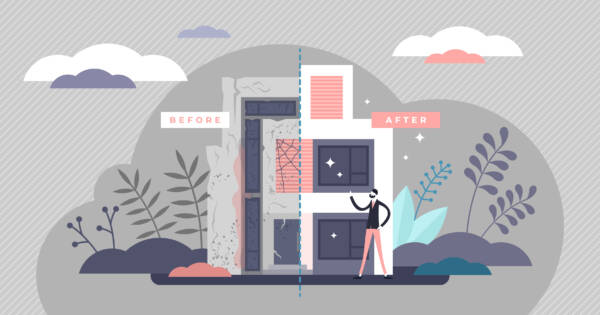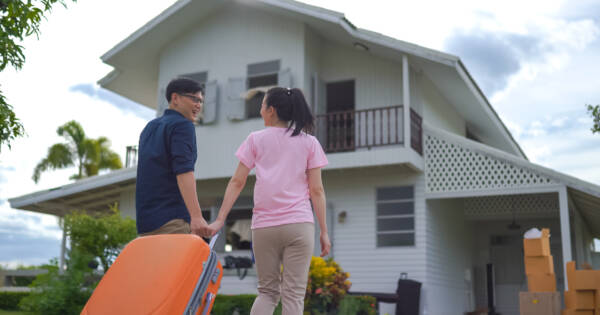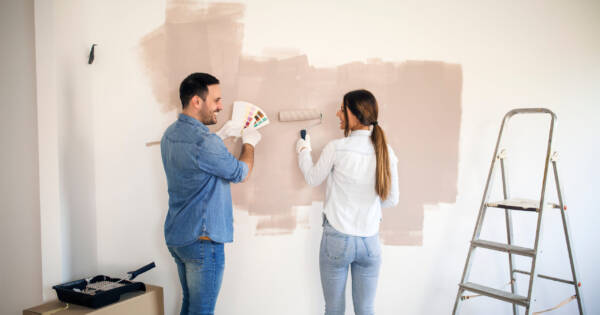HVAC systems are essential. After all, they help keep our indoor spaces comfortable and safe. However, you might assume the cost to repair your HVAC system will be astronomical when it acts up. In reality, many HVAC repairs are less expensive than you might expect.
By understanding the average cost to repair HVAC systems vs. the average cost to replace HVAC systems, you can make informed decisions about maintaining, repairing, and replacing your system. Let’s explore the factors that can help you decide what to do about a broken HVAC system and tips for keeping your repair costs low.
HVAC System Basics
Before we dig into HVAC cost considerations, let’s answer a couple of questions — what is an HVAC system, and why does it matter if it works efficiently? An HVAC (heating, ventilation, and air conditioning) system is a complex network of components that work together to control the temperature, humidity, and air quality in a building.
The heating component of an HVAC system is responsible for keeping indoor spaces warm during cold weather, while the air conditioning component cools the air during hot weather. The ventilation component ensures fresh air is constantly circulating throughout the building, reducing indoor air pollution and improving air quality.
An efficient HVAC system ensures the temperature of your home is pleasant and reduces the risk of health problems associated with poor air quality. Additionally, an efficient HVAC system conserves energy, reducing the cost of heating and cooling your home. So, maintaining your HVAC system and knowing when to replace it is important.
How Much Do HVAC Repairs Cost?
Homeowners pay around $350 on average to repair HVAC systems, according to Angi. However, repairs can be cheaper or pricier in certain situations. For example, simple repairs like replacing a faulty thermostat or cleaning a clogged air filter can cost less than $100. Complex repairs, on the other hand, can cost hundreds or thousands of dollars.
An older system or poorly maintained one may require more extensive repairs, which can be more expensive than fixing a newer system. Additionally, the cost of HVAC repairs can vary depending on the location and availability of replacement parts. Researching can help you decide if repair or replacement makes more sense for your bottom line.
How Much Does It Cost To Replace an HVAC System?
Replacing an HVAC system can be a significant investment. According to HomeAdvisor, the average cost to replace an HVAC system is $7,000, with a typical range of $5,000 to $10,000. Of course, the actual cost of replacing your HVAC system will depend on several factors. Those factors include the system’s size and capacity, the complexity of the installation, and the cost of labor and materials.
Considering the average cost of repair vs. replacement, fixing a broken HVAC system is typically better for the bottom line. However, frequent repairs add up. So, you’ll want to strike a balance between replacing an HVAC system prematurely and waiting too long. What factors can help you decide when it’s time to replace a broken HVAC system instead of repairing it? Airco recommends asking:
- How old is your HVAC system?
- What’s the repair cost?
- How often does the system break down?
- Are your energy bills suddenly more expensive?
If your HVAC system is under 10 years old, then the source says repairs likely make more sense than replacement. That’s especially the case when the repair costs less than 50% of the replacement cost. Replacing an HVAC system that breaks down at least once a year, on the other hand, may make more sense than frequent repairs. Similarly, skyrocketing energy bills may indicate it’s time to replace the current HVAC system with something more efficient.
Tips for Keeping HVAC Repair Costs Low
Homeowners can take a few steps to keep HVAC repair costs low and ensure their systems function efficiently and effectively. Here are a few ideas to keep in mind:
- Regular maintenance: Regular maintenance, such as cleaning and replacing air filters, checking and tightening connections, and inspecting ducts for leaks, can help keep your HVAC system in good working order and reduce the risk of costly repairs.
- Early detection: Catching problems early can lead to more affordable and effective repairs. Keep an eye out for signs of problems like unusual noises or higher energy bills, and have a professional HVAC technician inspect your system as soon as possible.
- Professional repairs: Attempting to repair your HVAC system yourself can lead to further damage and more costly repairs in the long run. It’s generally wise to have a professional HVAC technician diagnose and repair HVAC system problems.
By taking steps like these, homeowners can help keep their HVAC systems running smoothly, reducing the risk of costly repairs. If you haven’t already, consider scheduling an annual maintenance visit. According to Gladiate Air Conditioning & Heating, annual tune-ups can help prevent up to 90% of HVAC repair costs.
The Bottom Line
Repairing your HVAC system may cost less than you think. While the cost of HVAC repairs can vary, on average, homeowners pay around $350 to repair their HVAC systems. Homeowners can often minimize the risk of costly repairs by taking steps to maintain their HVAC systems and address problems early on.
While HVAC repairs can sometimes be pricey, regular maintenance, early detection of problems, and relying on professional repairs can save homeowners money in the long run. Research can help homeowners decide when it’s time to replace their current HVAC system instead of continuing to repair it.
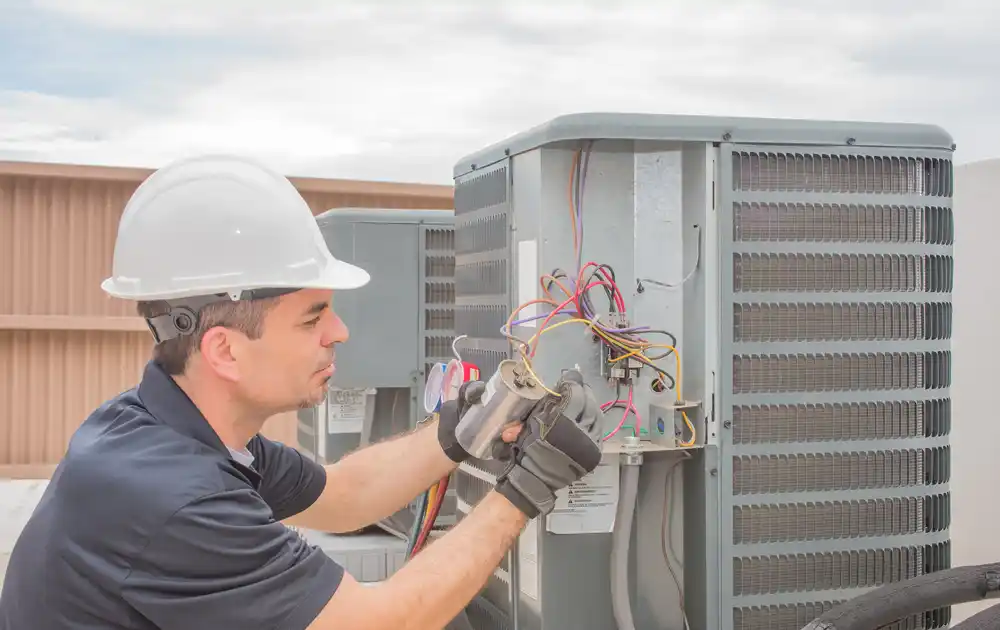 Shutterstock
Shutterstock